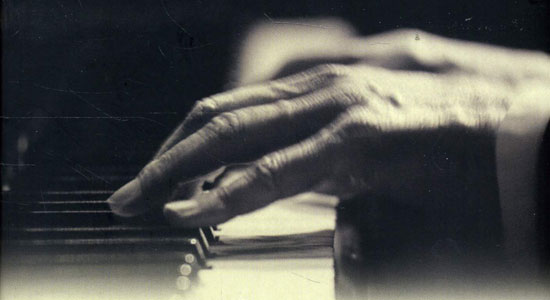 Nada Surf’s Matthew Caws isn’t big on organized religion, but when the spirit does move him, it always has a soundtrack. And that soundtrack has come a long way over the last 16 years. You’d be hard-pressed to discern so much as a whiff of snarky 1996 hit “Popular” amid the bracing, impeccably crafted power pop the trio hammers out with breathless efficiency on its new release, The Stars Are Indifferent To Astronomy (Barsuk). The transportive power of music is something Caws touches on quite frequently on Astronomy—that is, when he can tear himself away from more pressing concerns for our fucked-up planet. Caws will be guest editing magnetmagazine.com all week. Read our new Q&A with him, and check out our cover story on Nada Surf in last month’s issue of MAGNET.
Nada Surf’s Matthew Caws isn’t big on organized religion, but when the spirit does move him, it always has a soundtrack. And that soundtrack has come a long way over the last 16 years. You’d be hard-pressed to discern so much as a whiff of snarky 1996 hit “Popular” amid the bracing, impeccably crafted power pop the trio hammers out with breathless efficiency on its new release, The Stars Are Indifferent To Astronomy (Barsuk). The transportive power of music is something Caws touches on quite frequently on Astronomy—that is, when he can tear himself away from more pressing concerns for our fucked-up planet. Caws will be guest editing magnetmagazine.com all week. Read our new Q&A with him, and check out our cover story on Nada Surf in last month’s issue of MAGNET.

Caws: A long time ago, I came across a book called Temperament, written by Stuart Isacoff. Here’s a quick (and probably shoddy) synopsis. If it piques your interest, I highly recommend finding the book.
The intervals that we’re familiar with (seconds, thirds, fifths, sevenths, etc.) have existed for thousands of years, for as long as people have been harmonizing together. But they actually used to sound a little bit different. In the 18th century, the Western scale was slightly altered. The reason is that as pianos, harpsichords and organs became more prevalent, composers became more adventurous and started to write pieces that included key changes. They ran into trouble with their new compositions as they found that pianos couldn’t be tuned to work in different keys. You had to choose one and stick with it, lest you hit sour notes, which quickly became known as “wolf holes.” The problem was that keyboards are fixed-pitch instruments and, unlike the human voice and a fretless instrument like the violin, small pitch adjustments cannot be made on the fly. In looking at the scale as it was, a new guard noticed that the 12 notes of the scale were very nearly equidistant. Why not scoot the notes over a little so that they would be completely equidistant? Problem solved! The old guard was immediately up in arms over this suggestion. Everything will be a little bit out of tune! The new guard claimed that people would get used to this and start to hear this new “equal-tempered tuning” as in tune. And that’s exactly what happened.
If you’re curious about what pre-equal-tempered tuning sounds like, you can hear it sometimes on old bluegrass recordings, because a lot of Scotch/Irish music was handed down through the generations using only voice, guitar and fiddle, not a fixed-pitch instrument in sight. For a specific example, check out “Down On The Banks Of The Ohio” by the Blue Sky Boys on Harry Smith’s Anthology Of American Folk Music, Vol. 4. You might find that the singing and harmonies sound ever so slightly wrong and yet also totally perfect.
Video after the jump.






